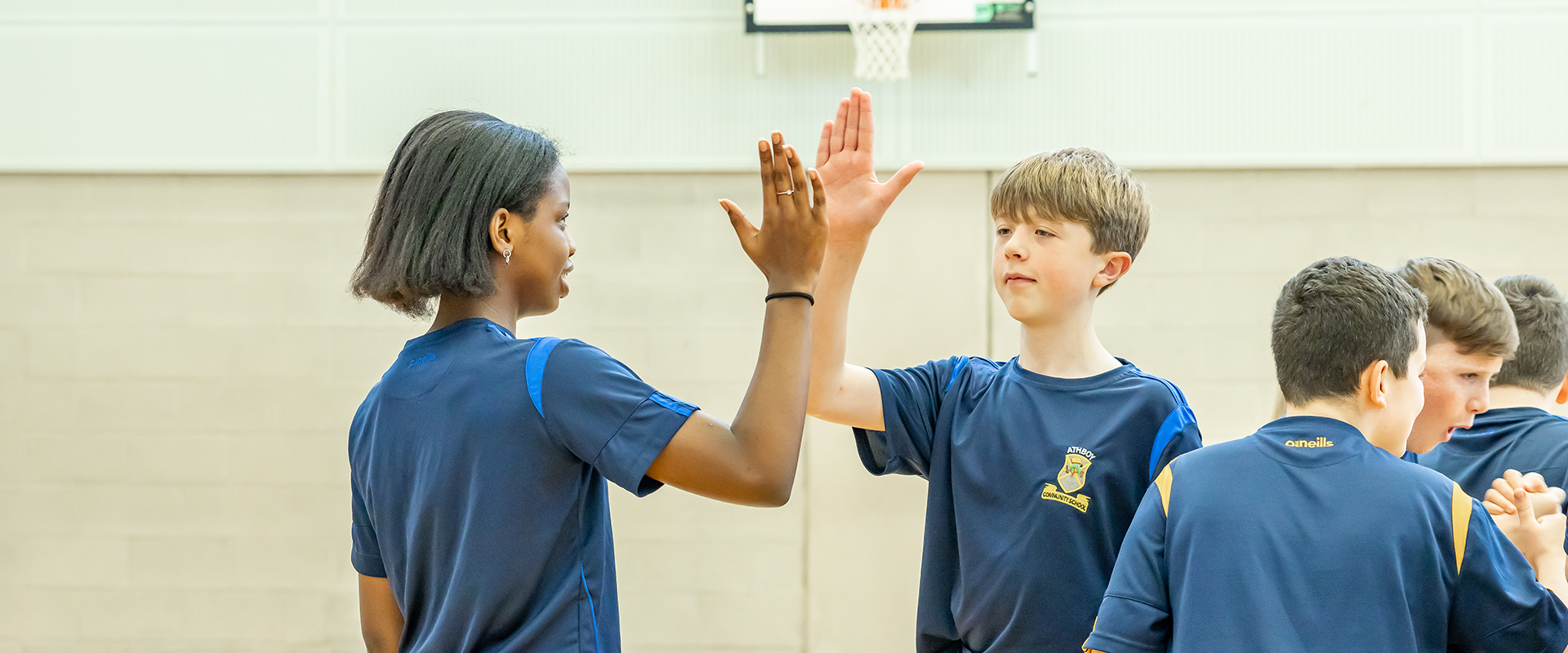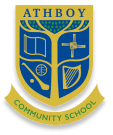
- + 353 (046) 948 7894
- office@athboycs.ie
-
Mon–Thu 8.50am - 3.40pm; Fri 8.50am - 1.12pm

Anti-Bullying Procedures
The procedures for investigation, follow-up and recording of bullying behaviour and the established intervention strategies used by the school for dealing with cases of bullying behaviour are as follows.
Reporting Bullying Behaviour
- A student or parent may bring a concern of bullying to any staff member in the school who will refer it to the year head initially, who investigate it.
- All staff including non-teaching staff such as secretaries, SNAs, caretakers and cleaners are encouraged to report any incidents of bullying behaviour witnessed by them, or mentioned to them, to the year head initially.
- All reports, including anonymous reports of bullying, will be investigated and dealt with by the year head initially who will refer it to the Deputy Principal when it has been confirmed to be a bullying incident.
Investigating and dealing with incidents
- The primary aim for the Year Head in receiving reports of bullying is to conduct an initial investigation and to resolve any issues and to restore, as far as is practicable, the relationships of the parties involved (rather than to apportion blame). In investigating and dealing with bullying, the year head will exercise their professional judgement based on this policy to determine whether bullying has occurred and how best the situation might be resolved. The year head will refer any issues which are not resolved after the initial report to the Deputy Principal/Principal.
- Year Heads take a calm, unemotional problems solving approach when dealing with incidents of alleged bullying behaviour reported by students, staff or parents.
- All reports, including anonymous reports of bullying will be investigated and dealt with by the year head. Interviews will be held with the relevant students and those involved will be asked to write an account of the incident.
- The Principal will be informed that an investigation is initiated.
- Parents and students are required to co-operate with any investigation and assist the school in resolving any issues and restoring, as far as is practicable, the relationships of the parties involved as quickly as possible through counselling.
- Incidents will be investigated outside the classroom situation to ensure the privacy of all involved. All interviews are conducted with sensitivity and with due regard to the rights of all students concerned. Students who are not directly involved also provide very useful information in this way. When analysing incidents of bullying behaviour, the year head seeks answers to questions of what, where, when, who and why. This is done in a calm manner, setting an example in dealing effectively with a conflict in a non-aggressive manner. The sociogram interview (Appendix E) can be an effective way of establishing what happened if the year head deems it appropriate.
- In cases where it has been determined by the year head/ the Deputy Principal that bullying behaviour has occurred, the parents of the parties involved are contacted at an early stage to inform them of the matter and to explain the actions being taken. The school gives parents an opportunity of discussing ways in which they can reinforce or support the actions being taken by the school and the supports for their students.
- Where the Year Head/Deputy Principal has determined that a student has been engaged in bullying behaviour, it is made clear to them how they are in breach of the school’s Anti-Bullying Policy and efforts are made to enable them to see the situation from the perspective of the pupil being bullied. If a student is involved in bullying they will be warned to stop and parents will be informed as above. The student may receive a Learning Code sanction such as a Red Note or a detention. Professional help may be recommended for the student where it is considered necessary by the school. The student’s behaviour will be carefully monitored and recorded. Serious and continuous bullying may result in the student being brought to the Board of Management.
- It is made clear to all involved (each set of students and parents) that in any situation where disciplinary sanctions are required, this is a private matter between the pupil being disciplined, their parents and the school.
Follow up
In determining whether a bullying case has been adequately and appropriately addressed the year head must, as part of their professional judgement, take the following factors into account:
- Whether the bullying behaviour has ceased;
- Whether any issues between the parties have been resolved as far as is practicable;
- Whether the relationships between the parties have been restored as far as is practicable;
- Any feedback received from the parties involved, their parent(s)/guardian(s) or the school Principal or Deputy Principal.
Follow-up meetings with the relevant parties involved may be arranged separately with a view to possibly bringing them together through Restorative Practice at a later date if the student who has been bullied is ready and agreeable. This can have a therapeutic effect and is engaged with through the students.
Where a parent is not satisfied that the school has dealt with a bullying case in accordance with these procedures, the parents may seek a meeting with the Principal to discuss the matter in full and make a complaint if necessary through the school’s complaints procedure.
In the event that a parent has exhausted the school’s complaints procedures and is still not satisfied, the Principal will advise the parents of their right to make a complaint to the Ombudsman for Children.






 App
App